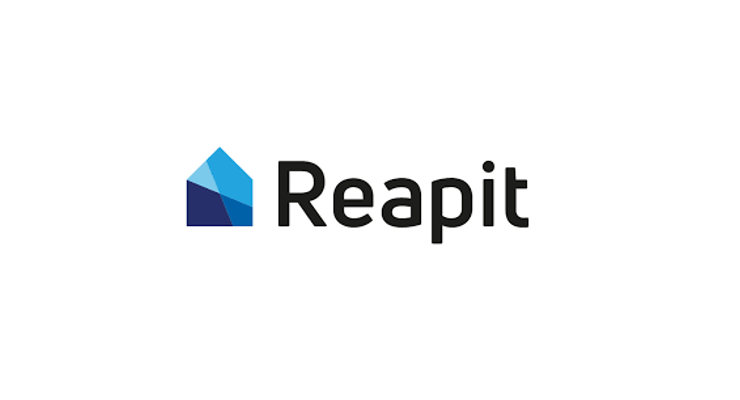Big Data Analytics Services: Revolution in Healthcare
Imagine a world where hospitals can predict the onset of an epidemic before it happens, doctors get real-time insights on treatment plans to help improve them and life sciences companies develop personalised medicines much faster; That future is coming closer than ever now thanks in no small part Big Data Analytics Services.
Through analytics
Healthcare is the perfect embodiment of big data analysis. This information comes from electronic health records, as well wearable devices and up until a few years ago that pillar in social media was also one of its elements. By analysing all these figures together, we can see patterns and trends that no human eye or pair of eyes could easily pick up on their own.
Win-win-win with Big Data
Big Data Analytics Services is changing healthcare for everyone involved in it:
Healthcare providers (hospitals, clinics): Imagine being able to identify patients at high risk of certain diseases before they have even fallen sick. Big data for the first time allows early intervention and prevention, which results in better outcomes and lower costs both for patient treatment as well as preventive care. How much
Payers (insurance companies): Big data can help identify possible fraud and abuse in the healthcare system. This saves money so that more patients can receive treatment.
Life sciences companies: Big data is a major aid in drug discovery. By examining large amounts of genetic and medical data that are irrelevant to individual patients, researchers can develop more precisely targeted therapies.
Recent Studies on Big Data
Eyeing hurtful Policies: Big data can analyse social media and medical records to identify the first signs of an outbreak. This enables faster public health intervention.
Personalized medicine: With a patient ‘s own unique genetic make-up and medical history, doctors can plan treatment regimens tailored to maximum effect for them.
Remote patient monitoring: Wearable devices collect information on the health of a patient 24 hours a day so that doctors may interpose remotely if necessary.
Challenges and Outlook
Big Data Analytics Services cannot solve all problems. Here are some bumps still lying in the road ahead:
• Chaos of data: Data from different sources cannot be reconciled together, making analysis quite difficult.
• Data privacy: It is essential to the patient’s safety to keep their information secure.
• Coping with the torrent of data: The amount of data that’s produced continues to grow; in order for us to be able do anything with this we need flow handling and a strong backend.
Emerging trends in Big Data for Healthcare:
• Federated learning: This lets hospitals cooperate on big data projects without directly revealing sensitive patient information.
• Blockchain: Secure technology like this can protect your data’s privacy, and allow healthcare analytics to trust the data shared on it.
The Future of Healthcare is Big (Data) and Bright
Imagine the kind of benefits big data analytics promises. Reshaping healthcare by overcoming challenges and embracing new technology, we can look forward to a future of personalized medicine, improved public health, and better patient outcomes all round.
Big Data in Action: Unveiling the Power of Healthcare Analytics
The previous section outlined the big picture of Big Data Analytics Services in healthcare. Now let’s get down to specifics, with a few examples on what this technology is doing for people nowadays. Current with a reweave-examples.: Innovation focused on the human depiction, then around data Technology trends are evolving so fast that even this may be overtaken by events.
Population Health Management: Big data helps us maximum analysis bring the health of entire communities into clear focus, rather than simply looking at an individual patient. By collating and analysing factors such as demographics, social determinants of health (income, education, environment), and patterns in disease prevalence health providers can identify at-risk populations and focus prevention measures. For instance, imagine a town with high diabetes rates. Big data can be used to find out why that is and where resources should be allocated – be it early screening programs or education campaigns on living with diabetes.
Clinical Decision Support: Doctors are drowning in real time data information. Big Data Analytics Services can act as a smart assistant, sifting through a patient’s medical history, his symptoms right now and the reports from any tests to aid doctors in diagnosis or treatment recommendations. This is particularly useful when dealing with rare syndromes or complex cases
Emerging Trends: Co-operation and Innovation
The future of big data in healthcare is overflowing with innovative solutions:
Federated Learning: This allows hospitals to collaborate on big data projects without directly sharing individual patient information. Imagine multiple hospitals working together to analyse data about a particular disease without compromising their patients’ identifiable information. Federated learning unlocks the power of collaboration–while still protecting privacy.
Blockchain: Super technology can enable data privacy and trust in data sharing for healthcare analytics. Blockchain functions as a digital ledger with various protections to ensure secondly access to and share data by authorized users. Multi-institutional research may undergo a revolutionary shift as a result.
The road to a data-driven future in healthcare big data analytics is taking healthcare to the next level. It will facilitate personalized medicine, more effective healthcare delivery and management for population health. How colonization of mega data is made possible at the time serious challenges are met, new technologies embraced and data security given priority, then we will be able to make optimal use of big data–and thus open a healthier future for all.
Ethical considerations and social impact of big data in healthcare
Today Big data for health care is changing everything, and the potential is limitless. Yet for all its thrilling opportunities there also lie ethical considerations–and societal impacts–that need to be studied in careful detail.
Ethical concerns and building trust Privacy and Security: Patient privacy is crucial. Healthcare organizations owe their clients a necessary transparency about how data is collected, used and stored. Strong data governance procedures together with robust cybersecurity measures are essential for patients to trust you.
Algorithmic Bias: Big data algorithms are only as good as the data on which they train. If this data is biased, algorithms used in healthcare delivery can perpetuate this bias. Reducing bias in data collection, algorithm design, and implementation is crucial to ensure that everybody has elections across the board with regard to healthcare equity
Accessibility and Equity: Not everyone is equipped with wearable tech or digital health tools which generate valuable data. This may result in a scenario where big data advantages only a privileged few, causing even greater disparities in healthcare than before. We need to strive for equal access to technology among all members of society-especially those who do not yet have it–and close the digital divide.
Control of Human Doctors in Medical Decisions vs. Algorithms: Although AI can offer useful insights about making medical decisions, the final decision is up to doctors and their patients inspiration by artificiality acting a Balancing and Remaining in Control: This is the essence of big data. Successful with this ethics in mind One must approach each question from a variety of angles:
Transparency and Public Commentary: Open conversations about the care-to-use of big data in healthcare are necessary. Patients have a right to know how their data is employed and should be able to participate in its management. N Regulation and Governance: Clearly delineated regulations and ethical guidelines regarding collection, storage, and analysis of data are essential. These will protect patient privacy, diminish prejudice, and guarantee fairness in healthcare delivery.
Collaboration and Public-Private Partnerships: It is essential for healthcare providers, technology companies, government agencies and patient advocacy groups to work together on the responsible generation and use of big data analytics in healthcare. Bear big: Elsewhere in society with Large Data and Medicine’s future:
Other purposes for dosing robust with bigdata Empowerment of Patients:
An individual is able to maintain control over his/her own health by looking after their medical data and using large volumes of data to make self-informed decisions about their well-being. Imagine the day when a person can trace health trends from data and energetically care for long-term illnesses. Personalized Prevention: By scrutinizing individual risk factors, healthcare provider can find people at high risk of developing certain diseases. That opens the way for preventive measures which can produce a healthier population and less costs as time goes by.
Drug Discovery and Innovation: Big data analytics are essential for the development of new drugs and therapies. Through analysis of immense genetic and clinical data files, scientists can find new drug targets along with accelerated development processes leading to more effective treatment.
A Data-Driven Future for a Healthier Society
With huge amounts of medical data available, Big Data Analytics Services promises to lead healthcare into the future. By being alert to the need to handle information ethically as well, promoting collaborative operations between different players and setting a high security batting-trough that protects patient privacy, we can make our healthcare system all-encompassing and preventive, tailored to each individual and available for all. This is the vision on which a healthier future society might be built: The chance for everybody to live long and healthy lives.
10 FAQs on Big Data Analytics in Healthcare
What are big data analytics in healthcare?
It uses advanced tools to examine vast quantities of medical data from many different sources and bring out patterns, trends for better decision-making. Think of it as a super-powered microscope that lets people see much more whole Raft barley.
How does big data help patients?
All big data can be used to lead more accurate offers better treatment, earlier detection or even pre-empt treatment and personalized medicine. Imagine doctors working tediously through thousands of individual bits of data about what you should or should not during a dozen words of natural language, when they could be foreseeing future health risks all in Shuo’s hands.
How does big data help healthcare providers?
Big data can pinpoint high-risk patients, make hospital operations more efficient and cut costs. It is as if every doctor had a personal assistant who helped him to operate with patients in life-and practice sphericity6.
What are some practical examples of big data in healthcare?
Discovering sudden outbreaks of disease by examining the Trends section in People magazine and matching it to medical records.
Making personalized treatments recommended for each patient based on their medical history and genes.
Monitoring patients remotely using wearable devices for alert healthcare.
What are the challenges of with big data in health care?
Ready to run – C: Various problems with dirty data not worth spending a lifetime or two, many mistakes correcting at my end again making the whole writing process feel like some terrible Examined some legal implication
How can we ensure data privacy in big data healthcare?
Strong data governance, robust cybersecurity measures and anonymization techniques are essential to protect patient information.
What is AI’s position in big data health care?
AI makes it capable of processing tons of data quicker and it is quicker for fast detection and recognition of complex patterns. It is a kind of strong weapon used in big data mining that helps cardiologist skills without substituting them.
What is current item hot topics in big data healthcare?
Federated learning can facilitate the cooperation of different hospitals on data analysis without patient particulars being disclosed. Blockchain technology can guarantee the safety of data sharing in research and innovation.
How can big data analysis improve healthcare fairness?
It is crucial to narrow the digital divide, so that all people are able to use technology. In order to make equal and fair healthcare a reality, a broad variety off datasets and unbiased algorithms are needed.
What does the future hold aimed at big data in health care?
Personalized medicine, good public health and a focus on prevention in the future big data has the potential to make healthcare more reasonable and healthier for everyone.









